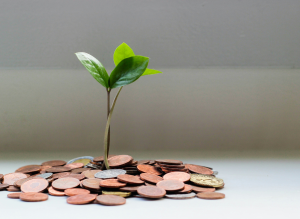Everyone is born into different families with varying degrees of wealth. Some are born into poor or middle-class families, while others are born into affluent families. Our childhoods and upbringings profoundly impact our mindset regarding building wealth and making money.
For instance, a person who grows up poor could develop a pessimistic mindset about wealth because they’ll think they can’t build it since they’ve never had it before. On the other hand, someone who grows up in a wealthy family might have a more optimistic mindset about wealth because they’ve lived in it their entire lives.
However, both mindsets can get you into financial trouble if you are not careful. There are pros and cons to each mindset that you should recognize so that you can learn to create a balance between being a financial optimist and a pessimist. That balance is how you can benefit from both attitudes about money without falling into the potential traps and associated hardships.
Let’s review each type of financial mindset and see how you can use them to your advantage:
What is a Financial Optimist?
Financial optimists think positively about their potential to make money and accumulate wealth. They don’t let challenges or setbacks get in the way of striving to improve their finances and become more independent. They see financial opportunities everywhere and have the mindset to have a positive outlook when things seem grim.
Pros
Here are the advantages of being a financial optimist:
Financial Confidence
Confidence is the key to building wealth, whether by starting a business or investing in the stock market. A financial optimist will feel good about taking risks while ignoring the naysayers and the negative signs of the markets and economy. Even if their economic situation is challenging, they’ll be confident it will get better soon.
Willingness to Make Investments
A financial optimist loves studying the various financial markets, such as stocks, bonds, and real estate. They regularly look for opportunities to invest in lucrative financial assets with long-term growth potential. They may even think about investing in a startup business as a venture capitalist.
Seeks a Financial Education
A financial optimist will take the time to improve their financial education by taking college courses or even online courses in finance. The more they learn about it, the better their chances of making well-informed financial decisions. Those decisions will hopefully make them money.
Cons
Here are the disadvantages of being a financial optimist:
Overconfident Risk Taking
Confidence is generally good, but you cannot let it get to your head. A financial optimist can become too overconfident in their skills and abilities to make money. Once that happens, they are bound to make riskier investments without considering the facts and data about the economy. Those risky investments could cause a financial optimist to lose money.
Doesn’t Save Money
Saving money in a bank account is difficult for many financial optimists because they see it as a wasted opportunity to make more money. They generally think, why would I save money when I could invest it and build wealth from it?
After all, putting money away in a bank account doesn’t earn any money other than some minimal monthly interest. While that might be true, saving some money is still a good idea to prepare for emergency expenses, such as car repairs and hospital bills.
What is a Financial Pessimist?
Pros
Here are the advantages of being a financial pessimist:
Prefer Saving Money
Financial pessimists prefer saving money because they fear potential future emergencies, such as lost jobs, natural disasters, medical issues, and car problems. Maintaining large cash reserves is more important to financial pessimists than investing or spending money on non-essential items. Those cash reserves will get them out of emergencies quickly.
Pays Debt Quickly
The average person might not care about making monthly payments on a loan or credit card if the debt allowed them to make a big purchase they wanted. However, financial pessimists don’t like accruing debt because it makes them feel like they are losing money. That is why they will pay off their debt as quickly as possible to avoid that financial burden hanging over them.
Cons
Here are the disadvantages of being a financial pessimist:
Doesn’t Take Financial Risks
Financial pessimists don’t like taking risks with their money due to all the uncertainty surrounding them. They won’t invest in stocks or real estate for fear of losing money. The best they can do is put their money in a savings or CD account to accumulate interest.
Not taking unnecessary financial risks might seem like a good thing, but it also makes it more difficult to build wealth. Financial pessimists won’t take any risks that could help them build wealth, which means they’ll rely more on their paychecks as their only source of income.
Overly Stressed and Worried
A pessimistic attitude about money can cause excessive stress, anxiety, and worry. If a financial pessimist lets these feelings overtake their lives, they will make bad financial decisions and develop mental health issues. The worst part is that most of their financial worries are probably about nothing serious.
The Verdict
Your mindset about finances will affect your ability to build wealth. If you maintain a pessimistic attitude about money, you will never take the risks necessary to make money. On the flip side, an optimistic attitude could limit your restraint and cause you to make riskier investments that will cause you to lose money.
The best thing to do is stop favoring one particular mindset. Approach your finances with a practical perspective, where you are willing to take on safer investments backed by research and data. Meanwhile, you should save a small percentage of your income for emergencies to protect yourself.
You’ll become much better off financially when you have learned to balance the best aspects of a financial optimist’s and pessimist’s mindsets. You’ll avoid bad risks and take on better risks to build wealth. Getting this right might take practice, but you’ll be happy once you establish this balance.






